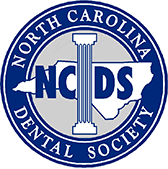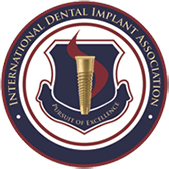
Some of the questions we hear most often from patients concern their coverage for dental services, such as restorative dentistryor annual teeth cleanings.
Some patients aren’t aware of the extent of their coverage,while others have questions abouttheir network and payment structure. Unfortunately, insurance jargon can be difficult to decipher for those of us who don’t work in the healthcare industry.
This is an issue many healthcare professionals are concerned about. When people don’t fully understand their insurance options, they inadvertentlyspend more than they need to on dental care, or lack coverage for important procedures.
Today, we’ll try todistill some of this insurance jargon into a brief, easy to understand resourcefor our patients. Let’s begin with some common questions we hear about insurance networks.
What Does It Mean When a Dentist is Not in My Insurance Network?
This question has to do with the structure of dental insuranceplans. Insurance companies contract out with certain dentists in a given area under preferred provider organization(PPO) agreements.
Theinsurance companies determine what rates dentists can charge, while the dentists can then bill the insurance companies directly.This ensures that patients receive affordable care, while dentists will receive reimbursement for their services from insurance companies.
Patients don’t have to stick with dentists in their insurance provider’s PPO network, but it may be more affordable to do so. The amount that an insurance company will cover for a procedure performed by a dentist outside of their PPO network varies,but you can typically still expect to receiveat least 50-80 percent coverage of the total cost.
The most important thingis that you’re able to find a dentist you trust and feel comfortable with,regardless of the insurance networks they’re a part of.
What Procedures Will My Insurance Cover?
The answer to this question varies from plan to plan.Insurance companies generally offerdifferent coverage “tiers,”some of which are fairly basic while others are more comprehensive.
A basic plan might only cover regular hygienic procedures such as cleanings and fluoride treatments.More comprehensive plans may include things like orthodonticprocedures, crownsand denture fittings.
If you receive dental insurance through your employer, they should be able toprovide you with literature detailing your different coverage options.If you purchase your own dental insurance, you’ll have to go straight to the insurance company to assess your options.
How Much Does My Insurance Pay for Treatment?
As long as your dentist is a member of your insurance provider’s PPO network, you can expect them to cover about40-80 percent of most costs, and full coverage dental insurance for preventable services. Depending on your plan,you mayeither have topay a deductible or copayment in addition to the amount covered by the provider.
A deductible is a fixed amount paid to an insurance provider each yearuntil you’ve contributed a certain amount to your coverage. Acopayment, on the other hand, is a fixed amount paid each time you receive treatment.
For people who don’trequire dental treatmentoften,a plan with a copayment may be the most cost-effective option. For others who do require regular trips to the dentist,a plan with a deductible may be more affordable.
Should I Expect Lower Quality Treatment If I have Medicaid?
Generally speaking, patients on Medicaid shouldn’treceive sub-par care from their dentists,and they should expect at least a limited number of procedures to be covered. Unfortunately, however, they may have a hard time finding dentists who are willing to treat them under their Medicaid plans.
This can be particularly problematic for patients who receive Medicaid from a health management organization (HMO). These plans don’t always provide adequate reimbursement to dentists, so some dentists are hesitant to take on Medicaid patients.
Other dentists who do accept Medicaid patients may only provide them with essential services.The harsh reality of the situation is that Medicaid is a flawed system, and that patients who are privately insured typically dohave better and more varied options for dental coverage.
Here at Modern Family Dental Care, we know how stressful finding the right insurance plan for you and your family can be. That’s why we offer all of our patients the opportunity to enroll in our Wellness Savings Planwhich can save them additional money on regular dental procedures.
Want to learn more about our Wellness Savings Plan or the insurance providers we work with? Contact usat one of our Charlotte dental offices today for more information.





